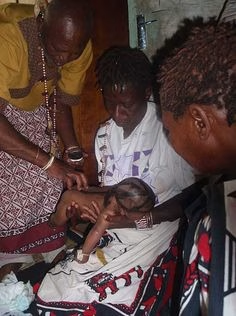In a world where modern medicine often takes center stage, Xhosa healing ceremonies stand as a testament to the enduring power of traditional African healing. These ceremonies, deeply rooted in the culture of the Xhosa people of South Africa, offer a unique blend of spirituality, music, dance, and ancestral wisdom. They are not just rituals; they are a way of life, a bridge between the physical and spiritual realms, and a source of healing for both individuals and communities.
In this post, we’ll explore the fascinating world of Xhosa healing ceremonies, uncovering their significance, the roles of traditional healers, and the spiritual practices that make them so powerful. Whether you’re curious about traditional African healing, seeking spiritual healing in South Africa, or simply interested in Xhosa culture and traditions, this guide will take you on a journey into the heart of these sacred rituals.
What Are Xhosa Healing Ceremonies?
Xhosa healing ceremonies are spiritual rituals performed by traditional healers, known as amagqirha or sangomas, to address physical, emotional, and spiritual ailments. These ceremonies are deeply embedded in the Xhosa belief system, which holds that illness and misfortune are often caused by disharmony between the living and the ancestral spirits. Through music, dance, and symbolic actions, healers connect with these spirits to restore balance and promote healing.
The ceremonies are not only about curing sickness; they are also about maintaining the well-being of the community. They serve as a space for self-discovery, cultural preservation, and spiritual connection, making them a cornerstone of Xhosa identity.
The Role of Traditional Healers in Xhosa Culture
Traditional healers, or amagqirha, are revered figures in Xhosa society. They are believed to be chosen by the ancestors to serve as intermediaries between the physical and spiritual worlds. Becoming a healer is not a choice but a calling, often marked by dreams, visions, or unexplained illnesses that signal the ancestors’ desire for the individual to undergo training.
Once called, aspiring healers undergo a rigorous initiation process known as ukuthwasa, which can last several years. During this time, they learn the art of divination, herbal medicine, and the sacred rituals needed to communicate with the ancestors. Music and dance play a crucial role in this training, as they are essential tools for entering trance states and connecting with the spiritual realm.
Music and Dance: The Heartbeat of Healing
One of the most captivating aspects of Xhosa healing ceremonies is the use of traditional music and dance. These elements are not mere performances; they are integral to the healing process. The rhythmic drumming, chanting, and movements create a sacred space where healers and participants can transcend the physical world and commune with the ancestors.
- Drumming: The beat of the drum is said to mimic the heartbeat of the earth, grounding participants and facilitating a connection with the spiritual realm.
- Chanting: Songs passed down through generations carry the wisdom of the ancestors, invoking their presence and guidance.
- Dance: Movements are not just expressive; they are a form of prayer, a way to embody the energy of the spirits and channel healing power.
Together, these elements create a transformative experience that fosters acceptance, self-discovery, and communal bonding.
Spiritual Connection: Ancestors and Healing
At the core of Xhosa healing ceremonies is the belief in the ancestral spirits. The Xhosa people hold that their ancestors continue to watch over and guide them from the spiritual realm. When illness or misfortune strikes, it is often seen as a sign that the ancestors are displeased or that a spiritual imbalance needs to be addressed.
During healing ceremonies, traditional healers invoke the ancestors through rituals such as:
- Offerings: Food, drink, or symbolic items are presented to honour the spirits.
- Divination: Healers use tools like bones, shells, or oracle cards to receive messages from the ancestors.
- Trance States: Through music and dance, healers enter altered states of consciousness to communicate directly with the spiritual world.
These practices not only facilitate healing but also strengthen the bond between the living and their ancestors, ensuring that cultural traditions are preserved and passed down through generations.
A Personal Story: Experiencing a Xhosa Healing Ceremony
To truly understand the power of Xhosa healing ceremonies, one must experience them firsthand. Nomsa, a young woman from the Eastern Cape, shares her story:
“I was struggling with unexplained anxiety and felt disconnected from myself. My family suggested I visit a sangoma. During the ceremony, the drumming and chanting were hypnotic. I felt a warmth spread through me, and suddenly, I was crying—releasing emotions I didn’t even know I had. The sangoma spoke to my ancestors, and I felt their presence, guiding me. It was like a weight lifted off my shoulders. I left feeling lighter, more connected, and at peace.”
Nomsa’s experience is not unique. Many who participate in these ceremonies report profound emotional and spiritual healing, often describing a sense of renewal and clarity.
Addressing Misconceptions: Respect and Understanding
While Xhosa healing ceremonies are deeply respected within the community, they are sometimes misunderstood by outsiders. It’s important to approach these practices with cultural sensitivity and an open mind. Traditional healing is not a replacement for modern medicine but a complementary practice that addresses the spiritual and emotional aspects of well-being.
Moreover, the role of traditional healers is not limited to divination; they are also skilled in herbal medicine and community counselling, making them vital healthcare providers in many rural areas.
Conclusion: The Timeless Wisdom of Xhosa Healing
Xhosa healing ceremonies are more than just rituals; they are a living expression of cultural identity, spiritual connection, and communal healing. In a world that often prioritizes the physical over the spiritual, these ceremonies remind us of the importance of balance and the wisdom of our ancestors.
If you’re seeking to learn more about traditional African healing or explore spiritual healing in South Africa, Xhosa healing ceremonies offer a profound glimpse into the power of ancient practices. They are a testament to the resilience of Xhosa culture and a beacon of hope for those seeking holistic healing.
- Consultation Fee: R450 or $45
- Call/WhatsApp: +27 774 892 957
- Email: dokitamukisa@gmail.com
- Website: sacredtraditionalhealingspells.co.za
- Facebook: Dokita Mukisa
Have you ever experienced a traditional healing ceremony? Share your thoughts or questions in the comments below—I’d love to hear your story!


